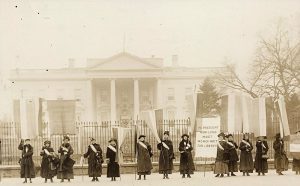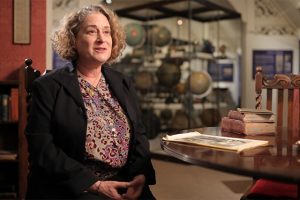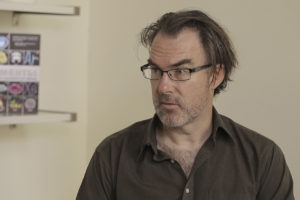Feminism in the U.S.
Historian Annelise Orleck on gender inequality, the fight for equal rights, and "Jane Crow" laws
What could a 16th century miller teach us? How does an intensive study of one case lead to a better generalization? Why do geopolitics influence our perception of world history? UCLA Professor of Italian Renaissance Studies, the author of “The Cheese and the Worms”, Carlo Ginzburg, explains why the approach to studying history is changing.
Microhistory. First of all, the meaning of the name. There are often misunderstandings concerning this name. Micro is supposed to be related to the either symbolic or actual dimension of the topic or of the objects of inquiry, implying, for instance, that the microhistorians are particularly interested in marginal people, but this is not the case. In fact, the prefix “micro-” is related to the microscope, so to an analytic approach to history.
Actually, I’ve been responsible for a series called “Microstorie”, directed by Giovanni Levi and me in the late 70’s and 80’s, and one of the first titles was a book of mine on Piero della Francesca – one of the greatest Italian painters, one of the greatest painters in the Western tradition. So, the idea was, in that case, to have an analytic approach to some paintings by a great painter. What came out from the analysis is an open question.
The project got a lot of attention from different countries: there were different waves, which could be interpreted in a sort of geopolitical perspective. So, there was first interest in France, Germany, England, then, for instance, Mexico, South Korea, Iceland, Hungary. Now there is an international network of microhistorians led by a Hungarian historian and a historian from Iceland.
Why did I say that this configuration is a geopolitical dimension? My answer to this question is the following: it would be possible to use microhistory to subvert sets of hierarchies, which are related to politics, to historical traditions. For instance, everybody takes it for granted that a topic related to French Revolution has potentially a world dimension. Everybody is potentially interested in it. But what about, let’s say, a village in Iceland, a fishermen’s village?
Behind this subversion of the usual hierarchies there is a dictum, this is my own interpretation, a dictum by Bronislaw Malinowski, the great polish-born anthropologist who then moved to the UK; he is usually regarded as the first one, the founder of modern anthropology. He once said: it’s not such-and-such tribe which is important; what is important are the questions we asked to any given tribe.
And I would add, what is relevant in microhistory is the possibility of having an intensive study of a case which would lead to a better generalization.
So, it’s not the cult of the fragment as such. The fragment or the case, I would say, is important, because it can lead to further questions and even to better provisional generalizations.
A book of mine, entitled “The Cheese and the Worms”, which has been translated to many languages including Russian, has been paradoxically regarded as a sort of a typical example of microhistory. I said “paradoxically”, because the book was published in 1976 and the discussions about microhistory started a few years later, in 1978-’79. Retrospectively I can look at my own book as an example of a research which can be regarded as leading to a sort of theorization of microhistory; after all, it’s quite normal that theories come after facts – better to say, after empirical explorations.
So, in that case, I worked on an individual – a miller from Friuli in Northeast Italy, who was put on trial by the Roman Inquisition twice; ultimately, at the end of the sixteenth century he was put to death as a heretic. I came across the trials against this man in the early sixties. I was working on a different project which was also related to the Inquisition trials to Friuli concerning witchcraft or counter-witchcraft. I came across a hand-written eighteenth century index of the first thousand Inquisition trials which had taken place in Friuli. I saw two references to trials against a man who believed that the world was born from rotten matter.
The book was very successful – it has been translated into 26 languages. It’s by far the most successful book I’ve ever written. “Why this book elicit such an immediate response?”, I asked myself. My first answer is related to the person who is at the center of the book, the miller. He was an exceptional man. He was regarded as an exceptional person by the inhabitants of the village themselves. Actually, the inquisitors asked: “Is he crazy?”, and they said: “No, he is not crazy, but he’s very strange and he makes strange speeches, I mean, he says strange things about a lot of different issues”.
So, first, there is the man, then, there are the documents. And I think that in those documents we have two topics which I put at the very center of my book. They would immediately appeal to anybody living in every culture. First, Menocchio’s challenge to religious and secular authorities; secondly, Menocchio’s approach to reading, placed at the interaction between written culture and oral culture.
Menocchio read books – I’ve been able to identify nearly all of them. He certainly read more, but I started from the references he made in the trials to the books he had read. Then I explored the way in which he read those books – the list included obscure tracts, but also a famous book, Boccaccio’s “Decameron”.
Menocchio’s cultural background was extremely complex and unexpected. But he approached printed books from a background which was deeply impregnated with oral culture.
This is a kind of experience which may sound familiar to many people from different countries.
If we look at a case intensively, relying on this microhistorial approach, we are often confronted with a lot of general issues. Francesca Trivellato, an Italian historian who teaches at Yale, wrote an article, which is available on the web, asking: “Is Italian microhistory helpful for a global approach to history?” She answered ‘yes’; I started from her detailed answer to develop a different argument in an essay “Microhistory and World History” which is included in the sixth volume of the “Cambridge World History”.
Everybody today speaks of “globalization”. It’s important to remember that this is not an event, but it’s a long time process, which started centuries ago. More and more countries are involved in this process. Each of us, for instance, is involved in a series of exchanges (through email, and so forth) which would have been inconceivable even twenty years ago. Historians must face this situation, asking new questions to the past. I think that microhistory can be an extremely helpful tool in order to deal with this growing, expanding world which raises new questions to the past.
We are submerged by data and the problem is how to deal with this enormous mass of data. How can we use the web, in order to exploit its potentialities? I’ve been confronted with this question myself, and I tried to teach my students to navigate in order to find something which, besides answering our questions, raises the possibility of asking new questions on the basis of unexpected findings. The web can be used as a tool for research; and research means looking for the unknown and finding the unknown.

Historian Annelise Orleck on gender inequality, the fight for equal rights, and "Jane Crow" laws

Historian and Philosopher of Science Liba Taub on the definition of science, Aristotle, and the ancient ideas ...

Art historian Jeffrey Taylor on connoisseurship, how can we tell an original painting from a copy and why less...